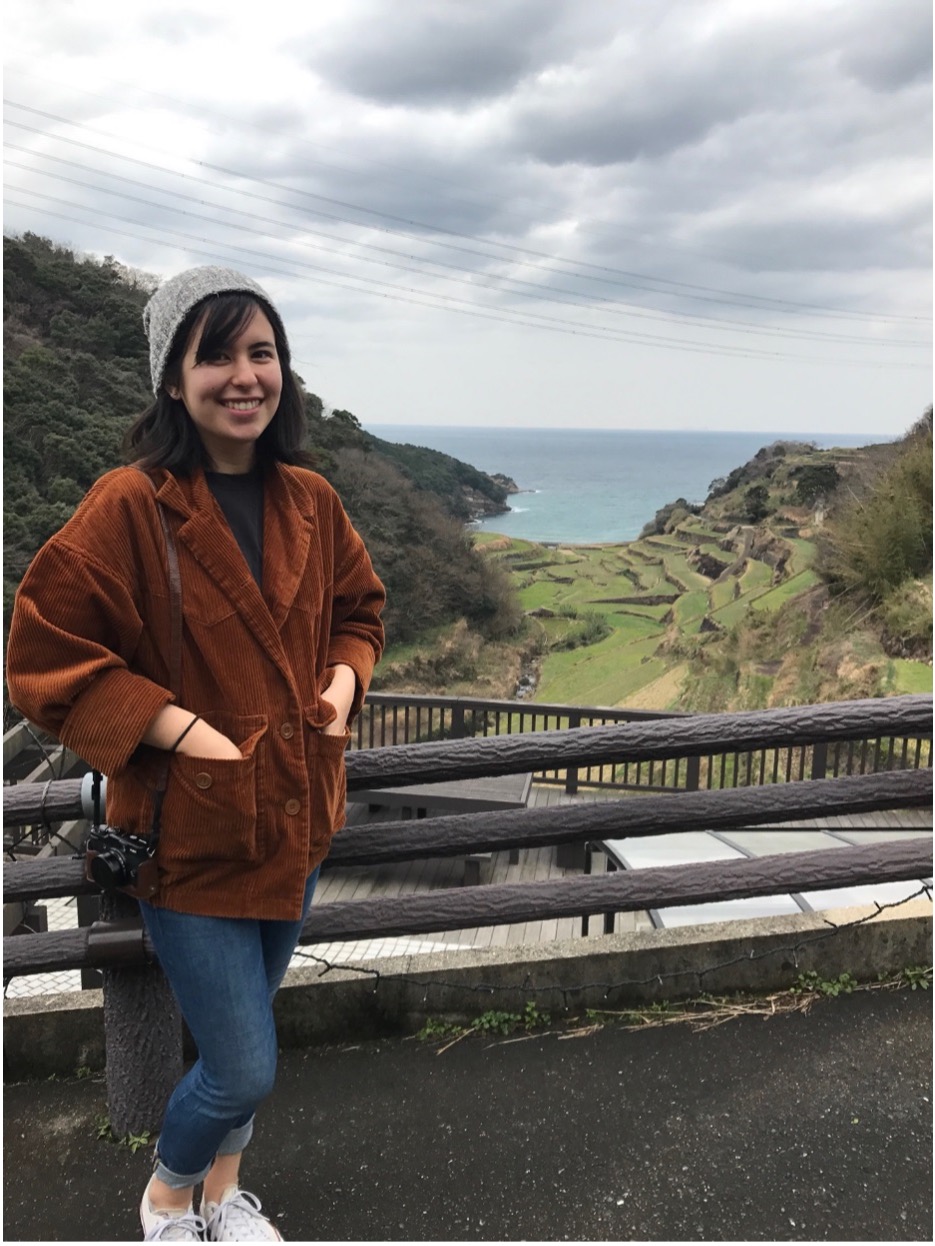The Asian Studies Department offers two Masters level graduate programs — the Master of Arts in Asian Studies (MAAS) and the Master’s in Asian International Affairs (MAIA) — as well as Graduate Certificates in Asian Studies and each of the geographical areas covered by SPAS’ area centers.
Asian Studies espouses an “area studies” approach, in which students are encouraged to use a variety disciplinary approaches to gain a more holistic understanding of Asia or geographical and cultural regions within Asia.
Graduate students in any department at UH Manoa may apply for the Graduate Certificate programs.
The Asian Studies Graduate Program is a member of WICHE-WRGP. For more information see Graduate Admissions.
For full, up-to-date information about the graduate programs, please consult the Asian Studies Department Graduate Student Handbook.
Our Graduate Programs
MAAS vs MAIA Comparison
| MAAS | MAIA | |
|---|---|---|
| Language requirement for graduation | 302 | None |
| Relevant work experience | Not required | Preferred but not required |
| Delivery format/timing | Core required courses are offered in the evening OR online | |
| Capstone projects with government, research, and nonprofit organizations | No | Yes |
| Academic focus | In-depth writing/theoretical focus Learning about Asian issues and perspectives for furthering our understanding of the human experience. | Current affairs focus Learning about Asian issues and perspectives in order to deal with them professionally |
| Area focus | In-depth knowledge about a country or region (although there is an inter-Asia track) | More inter-Asia |
MAAS Program Overview
The MA in Asian studies is offered in Plan A (thesis) and Plan B (non-thesis) formats.
An Asian Studies MA student’s academic program may concentrate on Inter-Asian studies, or on one of the following regions within Asia: China, Japan, Korea, the Philippines, South Asia, or Southeast Asia. Regarding the latter two, a student may concentrate on a particular country within those regions if sufficient courses are available. A designated faculty member serves as the graduate student adviser for his or her respective area.
MAAS Program Learning Objectives
We expect the student to:
- Possess an advanced understanding of at least one (1) Asian language. This means college-level fluency in reading, writing, speaking at the 302 level of a language relevant to the student’s area of concentration.
- Demonstrate an understanding of issues and problems in the arts, humanities, and social sciences as related to Asia.
- Demonstrate the ability to understand research and conduct research using at least one of the methodologies of various disciplines i.e. humanities, arts and social sciences.
- Demonstrate ability to integrate all of the above factors in a final major research project or portfolio (either Plan A or B, as described below).
MAAS Degree Requirements
For the Masters Degree, students without sufficient preparation in Asia-related course work may be required to take make-up courses for which no degree credit will be offered.
Students enrolling from an Asian country may have the foreign language requirement waived if they plan to concentrate on their native country or region. If they elect to concentrate on a country other than their own, they must fulfill the previously stated requirement.
**Students must complete the 301-302 level (or equivalent) in a language relevant to their geographical area of focus; they may count up to 9 credits of language above the 302 level for the degree, but they are not required to do so. Students who test out of the language requirement must take electives (which could include advanced language courses) to make up the full 30 credits.
***Of these, no more than 9 credits can come from any one department besides Asian Studies.
- Please Note:
- The UH-Manoa Graduate Division has degree requirements that all programs must follow. Please read them carefully.
- ASAN 310, ASAN 312 and any 399 or 499 cannot be counted toward the degree requirements.
Additional Requirements
- Residence requirement at UH: A minimum of 2 semesters full-time academic study or equivalent (16 credits’ worth of courses).
- Transfer of credits: At least 16 (half + 1) of the 30 credits that count towards the degree must be completed at the University of Hawaii while a classified graduate student. The same goes for courses numbered 600 and above (e.g., for Plan B students, at least 10 credits of graduate-level courses must be earned at UHM; for Plan A students, at least 7 credits of graduate-level courses must be taken at UHM, in addition to 6 credits of ASAN 700.
- For Plan A: Satisfactory completion of a thesis and an oral examination by a 3-member faculty committee.
- For Plan B: Completion of ASAN 695 (1 credit), which includes a presentation of a portfolio of your written work and an oral examination based on it by a 3-member faculty committee. Submission deadline: Week 14 of the semester in which you wish to finish.
MAAS Requirements Plan A vs Plan B
| Plan A | Plan B |
|---|---|
| Minimum total 30 credits, of which at least 12 credits must be at the 600+ or 700+ level (not including ASAN 700) | Minimum total 30 credits, of which at least 18 credits must be at 600 or 700+ level (cannot register for ASAN 700) |
| Asian Studies Core Requirements | Asian Studies Core Requirements |
| ASAN 600 in region of concentration (3 credits) | ASAN 600 in region of concentration (3 credits) |
| ASAN 600 in another region (600Z recommended) | ASAN 600 in another region (600Z recommended) |
| ASAN 601 (3 credits) | ASAN 601 (3 credits) |
| 2 other ASAN Courses (minimum 6 credits, may count 699) | 2 other ASAN Courses (minimum 6 credits, may count 699) |
| Language Requirement | Language Requirement |
| Completion of 301-302 or equivalent in a language relevant to your area | Completion of 301-302 or equivalent in a language relevant to your area |
| Breadth Requirements | Breadth Requirements |
| No more than 9 credits in any one department outside Asian Studies. | No more than 9 credits in any one department outside Asian Studies. |
| Completion of Thesis and Defense | Completion of Plan B Culminating Experience |
| ASAN 700 (6 credits) - taken in the last 2 semesters | ASAN 695 (1 credit) – in semester you plan to finish |
MAIA Degree Overview
The Master’s in Asian International Affairs is designed for working professionals whose careers would be enhanced by a deeper understanding of contemporary Asia and the multi-faceted (cultural, historical, social, and political) determinants and impacts of Asian nations’ engagement with their neighbors and the world.
Geared toward students with at least two years of professional experience (which is strongly preferred but not required for admission), the program includes courses on area studies and applied theory, and culminates in a capstone experience in which students will be asked to apply their knowledge either to a project in their own field or to a collaboration with professional partners working on real-world issues.
In this way, graduates of the program will be better positioned to work productively across cultural boundaries on questions of national and global importance, and to make well-informed decisions in a global environment in which Asia is increasingly central.
Most required courses will be offered at night, on weekends, or online, to accommodate the schedules of working professionals. During times of normal university operation, many classes will be offered in person. The full degree is not designed to be completed entirely online.
MAIA Program Learning Objectives
Graduates of the MAIA program will be able to:
- Demonstrate an advanced understanding of key sources and modes of conflict and cooperation in contemporary Asia.
- Demonstrate advanced understanding of diverse Asian perspectives on issues of regional and global significance.
- Accurately interpret and critically assess research on Asian international affairs, and express their analyses concisely.
- Reflect critically on the ethical consequences of different paths of international engagement in the Asia-Pacific.
MAIA Degree Requirements
The MAIA program requires students to take a total of 30 credits of coursework, of which
- at least 18 credits must be at the 600 level or higher;
- not more than 14 credits may be taken online;
- all courses must be Asia-related, unless they provide important theoretical or methodological training, in which case the student may petition to include up to 6 credits of non-Asia-related courses.
Please Note:
- In addition to the required courses, students may elect to take courses from Asian Studies or from other departments on campus. Students will be assigned an academic adviser who can help them design a study plan that meets their individual needs.
- The UH-Manoa Graduate Division has degree requirements that all programs must follow. Please read them carefully.
- Graduate students are strongly encouraged to take graduate level courses (numbered above 600) whenever possible. Some 400-level classes may be meant for both undergraduate and graduate students; other classes may offer undergraduate and graduate sections concurrently. In such cases, graduate students should always register for the graduate level section. ASAN 310, ASAN 312 and any 399 or 499 cannot be counted toward the degree requirements.
Asian Studies Graduate Certificates
The Asian Studies Graduate Program offers seven Graduate Certificates that are open to all students of graduate standing who meet the admissions requirements. To obtain a certificate, students must complete five relevant courses (15 credits). Students may apply for one of the following seven programs:
- Graduate Certificate in Chinese Studies
- Graduate Certificate in Japanese Studies
- Graduate Certificate in Korean Studies
- Graduate Certificate in Philippine Studies
- Graduate Certificate in South Asian Studies
- Graduate Certificate in Southeast Asian Studies
- Graduate Certificate in Asian Studies (for students who want to study inter-Asia)
Grad Certificate Overview
The Graduate Certificate in Asian Studies enables students to gain (and demonstrate evidence of) cutting-edge knowledge of Asia or a specific region in Asia. A Graduate Certificate can serve as a valuable tool in career development for graduate students in discipline-based programs (e.g., PhD or MA students in sociology, political science, music, or law) and for professionals in business, government, education, law, public health and other fields in which there is increasing demand for integrated, interdisciplinary knowledge about Asian cultures. Students can tailor the certificate program to meet their academic and career goals.
Grad Certificate Learning Objectives
At the completion of the coursework necessary for the Graduate Certificate, students will
- Demonstrate an understanding of issues and problems in the arts, humanities, and social sciences as related to Asia or a region within Asia.
- Demonstrate the ability to understand research and conduct Asia-related research using at least one of the methodologies of various disciplines, i.e. humanities, arts and social sciences.
Grad Certificate Requirements
To achieve these learning objectives, students in the Graduate Certificate Program take:
Who can apply?
- Individuals with a bachelor’s degree or higher from a regionally accredited United States college/university or its equivalent from a recognized foreign institution of higher learning.
- Students currently enrolled in any master’s, doctoral, or professional degree program at UHM.
For further information, please contact the Asian Studies Graduate Program Chair, Dr. Young-A Park, at yapark@hawaii.edu.


